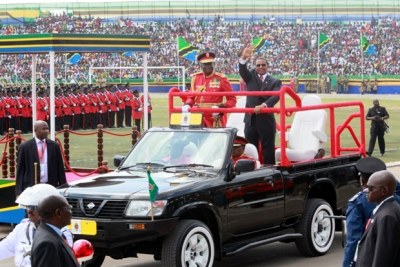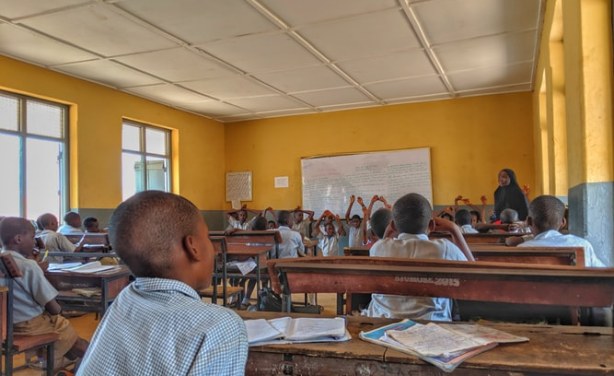-
Tanzania: Tanzania Put Education High On the Agenda At Independence. Here Are the Results 60 Years On
The Conversation Africa, 6 December 2021
Soon after independence from Britain in 1961, Tanzania declared war on three main obstacles to its development goals - ignorance, disease and poverty. Well ahead of other African… Read more »
-
Tanzania: Tanzania At 60 - Massive Reforms in Public Service Recorded
Daily News, 3 November 2021
TANZANIA has recorded remarkable strides in creating strong public service system, since independence and that has greatly contributed to the development of the national welfare,… Read more »
-
Tanzania: Tanzania At 60 - Major Strides in Defence, Security
Daily News, 30 November 2021
FOR the past 60 years Tanzania has enjoyed peace and security since attaining independence, with the country recording notable success in protecting all its borders. Read more »
-
Tanzania: Tanzania At 60 - Remarkable March to Greatness
Daily News, 1 November 2021
TANZANIA will in 39 days mark the 60th Independence Anniversary with so much to celebrate socially, culturally and economically. Countless feats have been registered since December… Read more »
-
Tanzania: 60 Years of Independence - Reflections On Bunge's Post - Independence Performance
Daily News, 25 November 2021
ON Monday last week, by prior arrangement and agreement; a delegation of information officers from the Speaker's Office in Dodoma, visited me at my cozy retirement home in Ukerewe;… Read more »
Education Key as Tanzania Celebrates 60 Years of Independence
Well ahead of other African countries, Tanzania introduced a universal primary education programme in 1974 in keeping with its "education for self-reliance" policy. The government then estimated that 85% of the population was illiterate and extremely poor. Hunger, widespread disease and a low average life expectancy of just above 40 years, were also major obstacles. Periodic droughts, food shortages and limited access to international aid further complicated matters.
What Tanzania still needs to do in order to achieve quality and inclusive education, is to prioritise disadvantaged and marginalised children in schools, and a human rights-based approach with commitment to recognising and respecting the rights of children while they are attending school, writes Simon Ngalomba, Lecturer, University of Dar es Salaam for the Conversation Africa.
InFocus
-
Tanzania has achieved much in the last 50 years in various spheres of development but still there is a long way to go, President Jakaya Kikwete told the nation on Friday during ... Read more »



